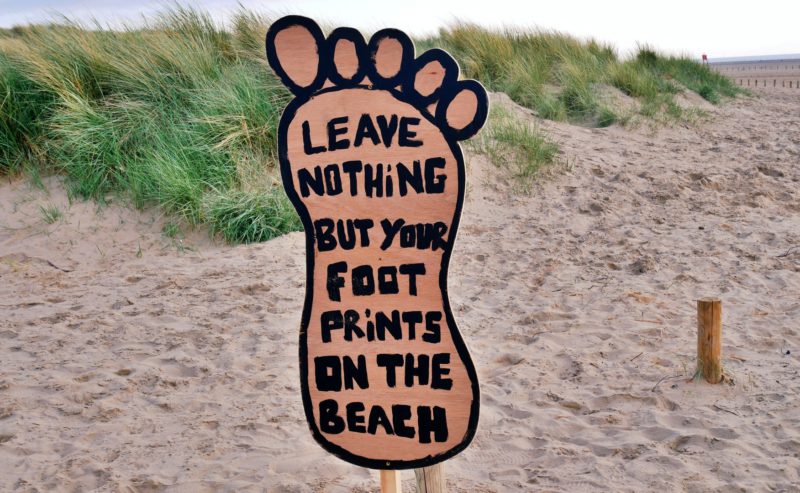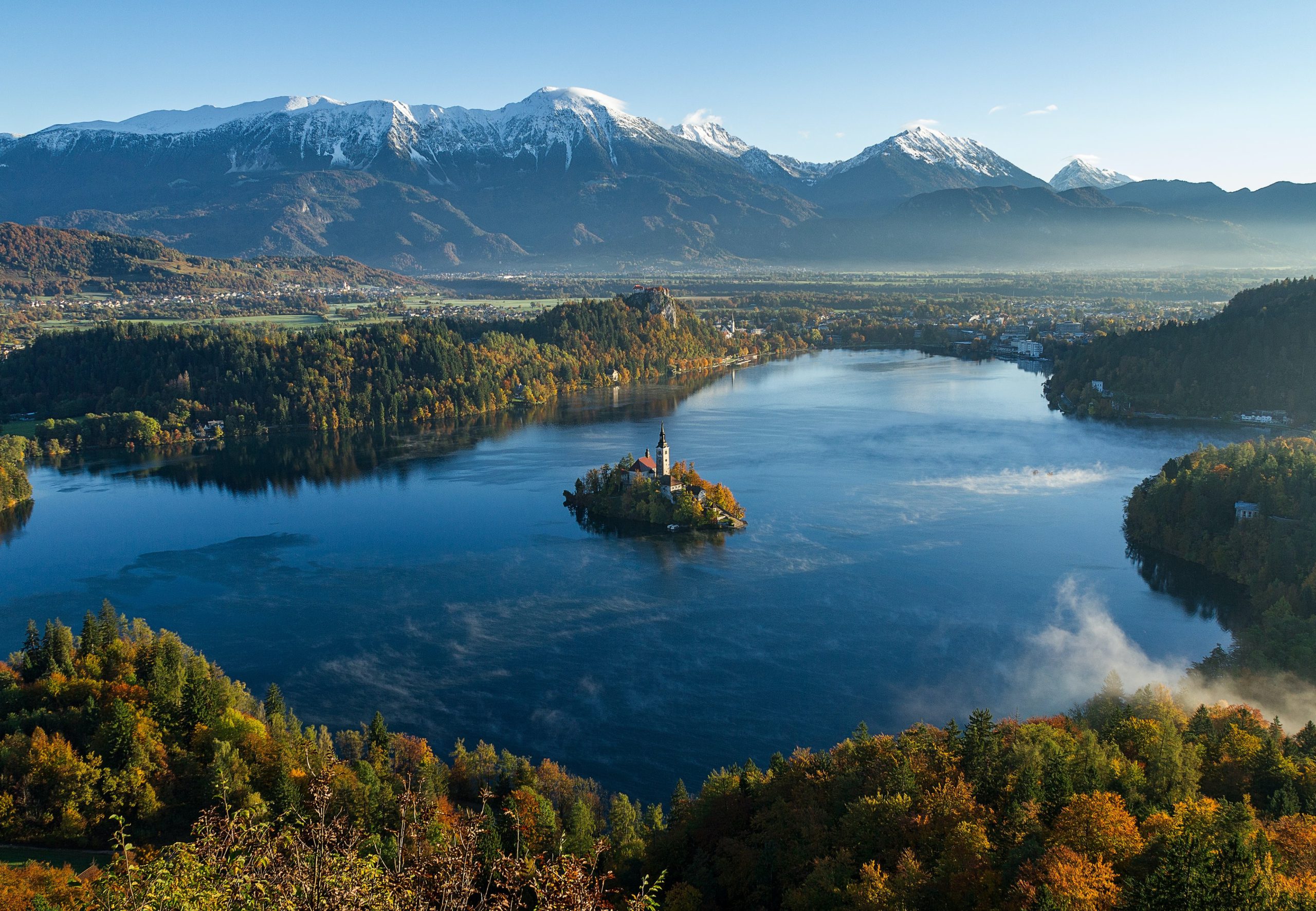Ecotourism is a form of responsible travel that started to gain traction in the 1980s. It’s a philosophy that aims to center trips around maintaining natural resources and leaving the environment untouched while ensuring local communities are cared for. Essentially, this type of travel focuses on preserving the biodiversity of a destination and the culture of the area.
You may have heard other words used in place of ecotourism, such as eco-friendly, conscious traveling, and ethical or sustainable tourism. But the goal of these labels is the same: to ensure the environment, the culture, and the locals of these travel destinations are protected. This all starts with travel companies and travelers becoming aware of their impact.
What defines ecotourism?
Ecotourism encompasses travel destinations, such as natural parks and preserves, reservations and indigenous lands, and smaller towns and villages in remote areas. Within trips to these areas, ecotourism focuses on the four types of impact listed below:
- Physical impact: Ecotourism aims to lessen the impact on the environment to ensure the land, parks, and other natural areas remain untouched and or safe from travelers. This also includes the well-being of wildlife and marine life.
- Cultural impact: Eco-friendly travel aims to ensure local and indigenous communities are preserved, that their stories and cultures are taught through tours, and sacred spaces, rituals, and landmarks are maintained. Ecotourism fosters cultural awareness.
- Psychological impact: Another goal of ecotourism is to ensure local communities are left unharmed during tours and visitations from travelers. This category can undertake anything from tourist dress codes and waste to increased traffic. The goal is to reduce and remove any impact on the day-to-day life of residents.
- Financial impact: One of the most important goals of ecotourism is to help preserve the land by gathering money in exchange for lodging and tour services. These financial gains help maintain the grounds, parks, and communities, along with ensuring local communities are directly profiting from the travel/tours. Travel to these areas should leave the communities better off than they were before tourism programs.
The overarching idea of ecotourism is this: to preserve the land and the communities when traveling to natural areas, leaving a positive impact with little to no carbon footprint. While that may seem like a mouthful, the bottom line is about being conscious of impact everywhere we go. If we can be mindful about how we travel, we can ensure everyone involved is safe and supported.
How does ecotourism work?
You might be wondering how it’s possible to travel without impacting the places you travel to. There are ways to ensure you’re making as little impact as possible, all thanks to eco-friendly tours and accommodations. When a company decides to focus on eco-friendly travel, they look for ways to minimize the physical, social, and psychological impacts that could be created by building a hotel or bringing a tour through a natural area. Regarding accommodations, these facilities are typically known as “low-impact” facilities and use items and practices such as:
- compost toilets
- hammocks/camping gear
- limited to no electricity/Wi-Fi
- solar panels and green energy resources
- water efficiency
- local/seasonal food options
- recycling
- avoiding disposable plastics and having water refill stations for reusable bottles
While these facilities focus on the physical impact, another important aspect of ecotourism is ensuring that part of the profits go back to conserving the land, along with ensuring the local communities and guides are cared for. During a guest’s visit, part of the mission is to educate them about the land and the political/social climate, along with the history of the area to foster a deeper connection between the people. These experiences can create a sense of empathy with regards to individual perspectives.
To do this well means partnering with local communities and indigenous groups in genuine ways. That means focusing on tours that truly reflect the people who live there and their history without causing harm, disruption, or displacement. A few ways ecotourism does this is by:
- limiting the number of guests per day/per tour to create more genuine and intimate experiences
- ensuring guides and hosts are from the area
- ensuring guides and hosts have the resources they need to educate and accommodate
- empowering and educating locals on tourism practices and giving them the resources to do so
- respecting the land, sacred spaces, and sacred days (people over profit)
When genuine partnerships are made, the land is cared for and communities profit. This gives travelers a space to learn and grow and communities the resources to thrive.
What to look for when it comes to eco-friendly tours and accommodations
While more and more eco-friendly operations are popping up around the globe, you can typically find eco-friendly options in natural areas with large forests, rainforests, wildlife preserves, national parks, and beaches. Even city tours can support eco-friendly activities. When booking, look for the following options:
- Eco-friendly accommodations (hotels/hostels/resorts) or camping options
- Tours that offset their carbon footprint either by walking/biking instead of vehicles or by giving back to nature (planting trees, supporting local farms, etc)
- Companies and tours that are recognized as “green” or eco-friendly through larger organizations that monitor behavior and activities
- Organizations and tours that give back directly to the communities they work in
- Guides who are from the communities you are visiting
Individual ways to be an ecotourist
You can book tours and accommodations based on eco-friendly seals of approval, but there are small ways you can support the ecotourism movement.
- Take time to research your travel destination and look for eco-friendly options
- Stay at eco-friendly hotels, hostels, resorts, or camps (avoid brand names and large complexes)
- Book tours that are run by local guides
- Buy souvenirs and food from small, local mom-and-pop shops
- Take trains over planes when possible
- Book non-stop flights if flying is a must
- Consider the ingredients in the products you travel with (sunscreen, hair care, etc)
- Donate to local organizations
- Avoid daily maid services and reuse towels
- Stay on designated trails and remove trash to keep nature pristine and clean
- Honor the request of a place/people that consistently says they don’t want tourism, even if you want to go there
Why does ecotourism matter?
Much of the planet has been influenced by capitalism and modern resources to the extent that natural spaces such as parks and forests are fighting to stay preserved. Ecotourism reinforces the importance of natural spaces and works to ensure these areas are maintained and protected, so folks from all over have the ability to visit and enjoy the beauty and culture. It’s not until we immerse ourselves in nature that we remember the importance of reconnecting to the Earth and the positive impacts on our mental and emotional well-being. We want to ensure these spaces remain for many generations to come.
More importantly, ecotourism aims to connect people across the globe, fostering safe and genuine immersions that can help bridge gaps between cultures and teach folks from all walks of life about various ways of living. It seems this form of travel is a way to help unify us as a planet and remind us all that we are more alike than different.
You can buy material possessions and find joy for a short time, but traveling and the experiences that accompany seeing new places stay with us for a lifetime. Ultimately, travel experiences are priceless when it comes to the memories we create and the knowledge we gain. Book your next eco-friendly trip with TourHero and discover a new world and new you.
About TourHero
TourHero is a social travel platform that enables you to travel with like-minded people and fall in love with the journey. We work closely with handpicked local operators to ensure every experience curated is unique and exclusive to your travel group. Come with us on epic adventures and create memories that last a lifetime. Get started here!










